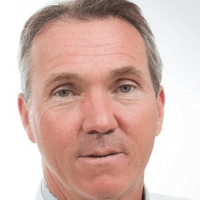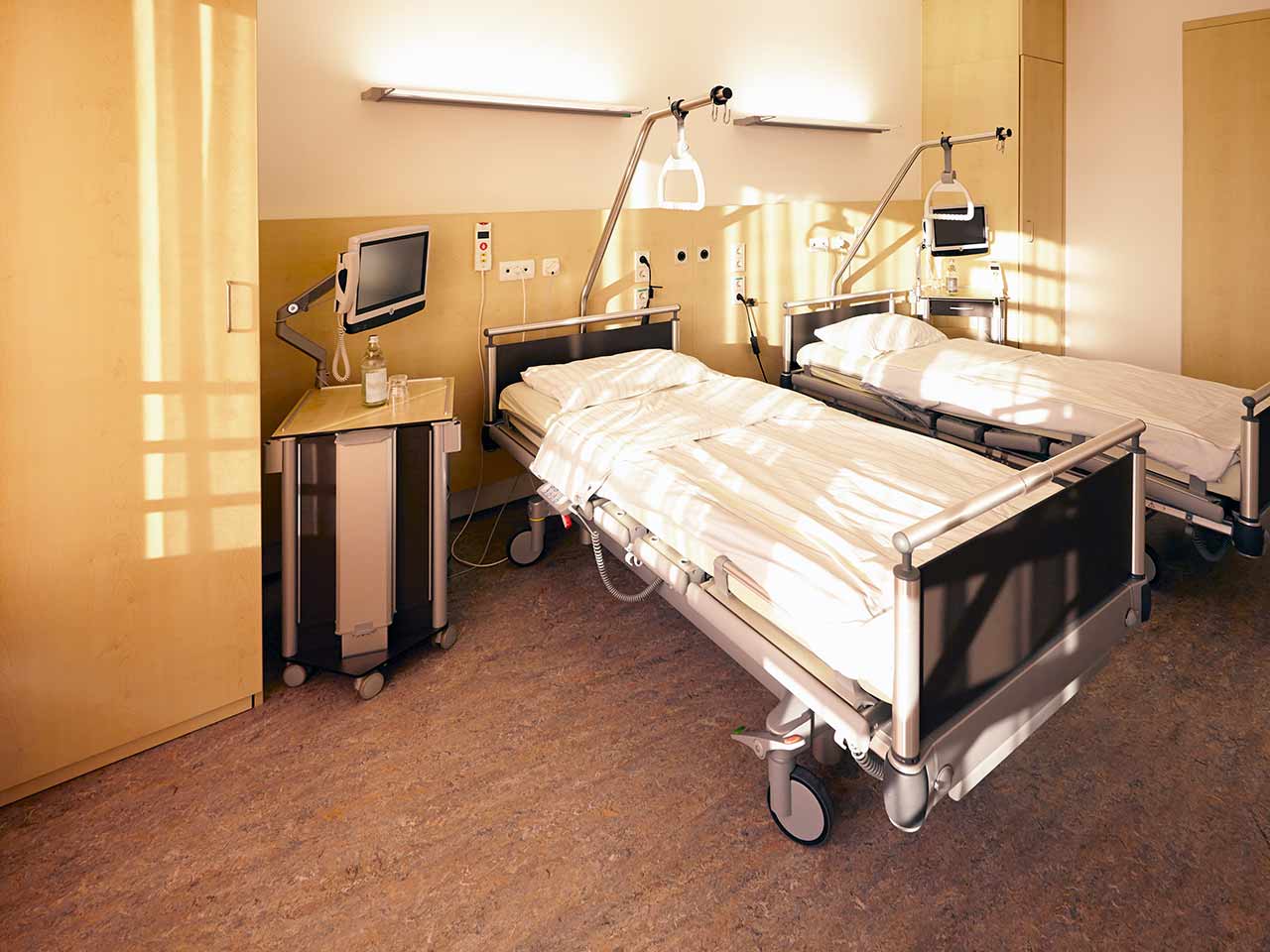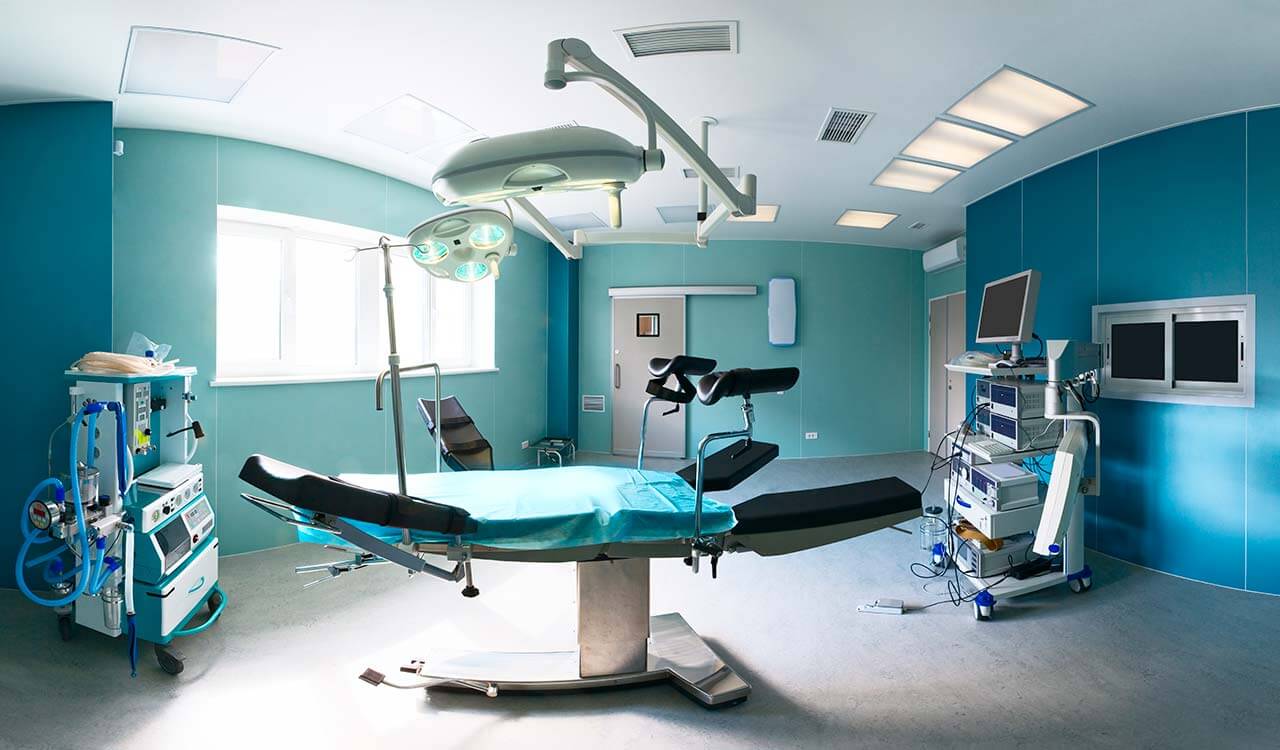
The program includes:
- Initial presentation in the clinic
- clinical history taking
- review of medical records
- physical examination
- dermatological examination
- laboratory tests:
- complete blood count
- ANA (antinuclear antibody)
- 25-Hydroxy-Vitamin D
- folate/B12
- consultation of related specialists
- symptomatic specific treatment
- the cost of essential medicines and materials
- nursing services
- control examinations
- full hospital accommodation
- developing of further guidance
Required documents
- Medical records
- Photo of the affected body regions
Service
You may also book:
 BookingHealth Price from:
BookingHealth Price from:
About the department
The Department of Dermatology, Allergology and Phlebology at the Helios Hospital Hildesheim offers the full range of medical services in the areas of its specialization. The medical facility deals with both diagnostics and treatment of all diseases of the skin and its appendages – hair and nails. The treatment of malignant skin tumors is of particular interest. The department's dermatologists use the most modern conservative and surgical therapeutic techniques for skin cancer treatment. The department has the status of the Skin Cancer Center certified by the German Cancer Society, and therefore the quality of medical services in this area is at the highest level. The department's service range also includes aesthetic dermatological procedures. The therapeutic options of the medical facility are complemented by both diagnostics and treatment of dermatological manifestations of allergies and venous diseases. The work of the department's specialists is based on adherence to modern clinical protocols and the use of the very latest treatment methods available in dermatology. The department is headed by Prof. Dr. med. Michael Tronnier.
The department has earned an excellent reputation in the treatment of malignant skin tumors and is certified as the specialized Skin Cancer Center of the German Cancer Society. The priority tasks of the department's dermatologists include early detection of skin cancer, treatment using the very latest conservative and surgical techniques, as well as follow-up monitoring of the patient upon the completion of treatment. The diagnostic process begins with a clinical examination, during which the doctor accurately assesses age spots, moles and other neoplasms on the skin using a dermatoscope. Whenever required, the specialist takes images of suspicious skin areas to assess the dynamics of changes in the future. If at the stage of clinical examination the doctor notices pathological changes characteristic of skin cancer, a dermatohistopathological examination is immediately conducted (the department has an in-house laboratory). Should the diagnosis be confirmed, the doctor will develop the most effective treatment strategy. The surgical resection of the tumor is usually the first-line treatment. There are two high-tech operating rooms available in the department for such operations. In most cases, the surgical procedure is performed under local anesthesia. If necessary, plastic surgeons can be involved in surgery to correct skin defects after tumor resection. The surgical treatment is complemented by chemotherapy, immunotherapy, radiation therapy and other conservative treatment methods (depending on the particular clinical case). In some cases, the tumor can be removed without surgery. Photodynamic therapy is used instead of surgery. After completing the basic course of treatment, the patient regularly undergoes follow-up examinations to exclude or early detect skin cancer recurrence.
Inflammatory skin diseases are also common in the clinical practice of the department's dermatologists. The therapy of neurodermatitis and psoriasis is of particular interest to the specialists. Prior to the treatment, the patient undergoes comprehensive diagnostics, including tissue sampling, blood tests, etc. To treat psoriasis, the doctors use ointments, drugs, and innovative forms of treatment: PUVA therapy, UVA1 phototherapy and UVB311 phototherapy. The same treatment methods are used for neurodermatitis. Obviously, the course of treatment and its duration are determined for each patient individually. As a rule, the treatment is outpatient.
The department's medical team provides qualified medical care to patients with diseases of the skin appendages (hair and nails). Alopecia areata is the most common hair disease. The pathology is treated using contact sensitizing therapy with diphenylcyclopropenone. Nail lesions usually occur due to infectious diseases. To treat nail fungus, doctors successfully use modern antifungal drugs, antibiotics and special medicinal nail varnishes.
An important focus of the department's doctors is on patients with skin allergies (for example, food allergies, drug allergies, pollen allergies). The department has a progressive laboratory for tests to detect a particular allergen (prick tests, epicutaneous and intracutaneous skin tests, provocation tests, etc.), after which specific desensitization is performed.
In the field of phlebology, the full range of venous diseases is diagnosed and treated. Varicose veins occupy a leading position among such pathologies. The department has the very latest ultrasound equipment for the comprehensive assessment of the condition of the veins and blood flow in the veins. Should pathological changes be detected, the patient will be prescribed the appropriate treatment. At the early stages, a venous disease can be eliminated using conservative methods (for example, compression therapy), while the advanced forms of venous diseases require more radical measures. The surgical treatment of venous diseases is carried out in close cooperation with the specialists from the Department of Vascular Surgery.
The department's range of medical services includes:
- Diagnostics and treatment of malignant and benign skin neoplasms
- Conservative treatment methods
- Photodynamic therapy
- Cryosurgery
- Treatment with ointments
- Chemotherapy
- Targeted and immunotherapy
- Radiation therapy
- Extracorporeal photopheresis
- Psycho-oncological care
- Supportive and palliative care
- Surgical treatment methods
- Mohs micrographic surgery
- Local surgical resection of the tumor
- Plastic reconstructive surgery
- Sentinel lymph node removal
- Superficial ablative procedures for precancerous conditions
- Conservative treatment methods
- Diagnostics and treatment of inflammatory skin diseases (focus on the treatment of neurodermatitis and psoriasis)
- Drug therapy
- Treatment with ointments
- PUVA therapy
- UVA1 phototherapy
- UVB311 phototherapy
- Diagnostics and treatment of hair and nail diseases
- Drug therapy
- Diagnostics and treatment of skin allergies (food allergies, drug allergies, insect venom allergies, etc.)
- Desensitization
- Diagnostics and treatment of venous diseases
- Conservative therapy with drugs
- Compression therapy
- Other medical services
Curriculum vitae
Higher Education and Professional Career
- 1981 - 1983 Study of Human Medicine at the University of Duesseldorf.
- 1983 - 1987 Study of Human Medicine at the of Tuebingen.
- 1987 - 1988 Training and 3rd part of the German State Medical Examination, Elective Course in Dermatology, Free University of Berlin.
- August 1989 Doctoral Degree.
- September 1989 United States Medical Licensing Examination (USMLE).
- October 1988 - February 1989 Research work at the Electron Microscopy Laboratory, Tuebingen.
- April 1989 - September 1989 Scholarship, Department of Dermatology, Wayne State University, Detroit, USA.
- October 1989 - September 1993 Residency, Department of Dermatology and Venereology, Luebeck Medical School.
- October 1993 Board Certification in Dermatology and Venereology.
- December 1993 Attending Physician.
- August 1994 Additional certification in Allergology.
- May 1997 Qualification in Environmental Health Protection.
- December 1998 Offer to become Extraordinary Professor of Dermatology, Luebeck Medical School.
- March 1999 Extraordinary Professorship (for 6 years) and Deputy Director of the Clinic.
- 2000 - 2006 Chairman of the Working Group on Dermatological Histology of the German Dermatological Society (DDG).
- June 2002 Appointed as Visiting Professor at the Luebeck Medical School.
- Since May 2003 Head of the Department of Dermatology, Allergology and Phlebology at the Helios Hospital Hildesheim.
- 2003 Optional training in Dermatohistopathology.
- Since 2010 Board Member of the Northern German Dermatological Society.
Clinical Interests
- Dermatopathology (in particular, melanocytic skin cancer).
- Cell cultures and cell biology.
- Dermatologic oncology.
- Dermatologic surgery.
- Inflammatory dermatoses and photobiology.
Photo of the doctor: (c) Helios Kliniken GmbH
About hospital
The Helios Hospital Hildesheim positions itself as an advanced provider of high-quality medical services at the European level. The medical facility is an Academic Hospital of the Hannover Medical School, thanks to which it can successfully introduce the very latest medical achievements into clinical practice. The hospital is distinguished by the excellent quality of diagnostics, highly effective treatment of pathologies of any severity and the best patient care based on understanding and humane attitude. The history of the medical complex dates back to 1838, so it carefully honors traditions, but at the same time the hospital actively uses innovative diagnostic and treatment methods. The medical team of the hospital consists of more than 1,450 people. The hospital employs highly qualified doctors who are rightfully proud of their treatment outcomes.
The medical facility has 579 beds. The team of doctors working at the hospital treats more than 28,000 inpatients and about 80,000 outpatients every year. The patients from foreign countries often undergo diagnostics and treatment in the hospital, which confirms the excellent reputation of the medical center in the international arena.
The hospital offers highly specialized departments with different medical focuses, including oncology, cardiology, gastroenterology, gynecology, dermatology, otolaryngology, general and abdominal surgery, plastic and aesthetic surgery, traumatology, etc. Many medical fields are awarded with prestigious certificates, including German Cancer Society (DKG) certification, IQM certification, and others.
Photo: (с) depositphotos
Accommodation in hospital
Patients rooms
The patients of the Helios Hospital Hildesheim live in spacious and light rooms. The furnishings of a standard patient room includes an automatically adjustable bed with an orthopedic mattress, a bedside table, and a wardrobe for storing things. All patient rooms have telephone, radio and TV, as well as free Wi-Fi. For maximum convenience of patients, each room has an ensuite bathroom with shower and toilet.
If desired, the patient can stay in an enhanced-comfort room. Such rooms are distinguished by a more sophisticated design, and are additionally equipped with a safe, a minifridge and upholstered furniture.
Meals and Menus
The patients of the hospital are offered tasty and varied meals. Diet and vegetarian menus are also available. If the patient follows a special diet recommended by the attending physician, he will be provided with food cooked from approved products.
Breakfast is served buffet style: eggs, various types of cheese, sausage, buns, jam, vegetables. There are three set menus to choose from for lunch. Dinner is also served buffet style.
In addition, the hospital has a cozy cafe called Leckeria where one can have a delicious snack. The range of dishes includes light salads, hearty set meals, snacks, sandwiches, cakes, as well as tea, coffee and soft drinks. The terrace is open in the summertime.
Further details
Standard rooms include:
Television
All patient rooms have a TV set. The TV can be used with headphones – the patients can use their own headphones or ask for the headphones from the staff.
Religion
The patient can talk with a Christian priest at any time. Divine services are held every Sunday at 10 am (on the ground floor).
Other religious services are available upon request.
Accompanying person
During the inpatient program, the accompanying person can stay with the patient in a patient room or at a hotel of his choice. Our managers will help you choose the most suitable option.
Hotel
During the outpatient program, the patient can stay at a hotel of his choice. Our managers will help you choose the most suitable option.




